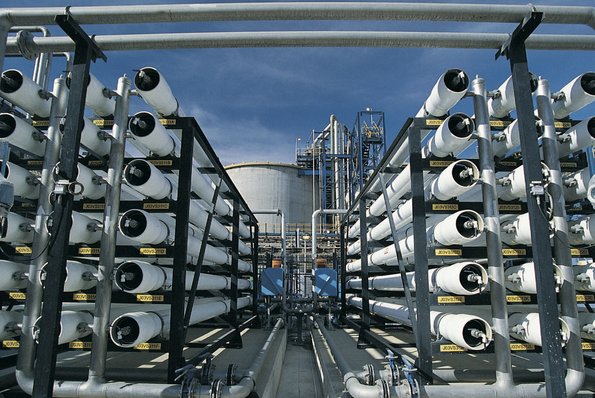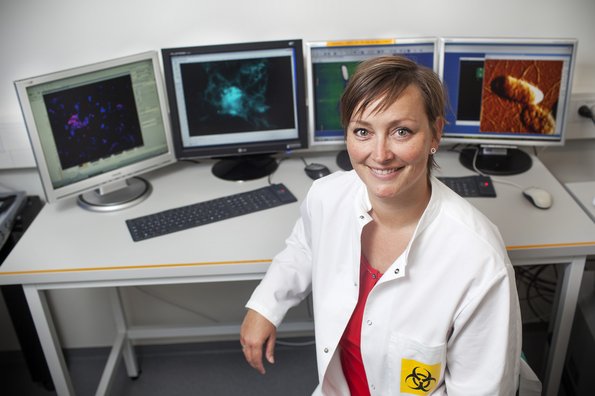Danish-funded research to improve access to clean drinking water worldwide
Billions of people around the world lack access to clean drinking water, leading to serious health consequences. BE-SALT, a new Danish consortium funded by Innovation Fund Denmark and partnered by Aarhus University, will streamline the process of filtering saltwater and brackish water into clean drinking water. BE-SALT has the potential to create a sustainable and cost-effective solution to the global water crisis.


According to the World Health Organisation (WHO) and UNICEF, around 2.2 billion people worldwide do not have access to safe drinking water and approximately 785 million people lack even basic drinking water arrangements. The lack of access to safe drinking water has serious public health implications, as contaminated water sources contribute to the spread of waterborne diseases such as cholera, typhoid, and diarrhoea.
A Danish consortium consisting of Aarhus University, VIA University College, SAMN Forsyning (water supplier) and the world-leading pump manufacturer Grundfos, is launching a research project with the ambition to develop a more efficient process for using reverse osmosis.
Reverse osmosis is commonly used in arid and coastal regions where freshwater resources are scarce and seawater and/or brackish water is abundant. Thus, regions such as the Middle East, parts of Asia, Africa and South America use reverse osmosis to treat groundwater or surface water to remove salt, contaminants, and micro-organisms. The aim of the project, called BE-SALT, is to improve the reverse osmosis process.
"Reverse osmosis is a well-known technology for converting salt, brackish and wastewater into high-quality fresh water," says Bo Højris from Grundfos. "The process is incredibly efficient at removing impurities from water. However, it requires a significant amount of energy, especially when filtration is hindered by microorganisms growing on and blocking the membrane. The latter is what we at BE-SALT want to investigate and solve. We believe that with intelligent control systems we can improve the filtration process, which will lead to a reduction in the consumption of both water, chemicals, and energy, as the pump can push the water through the filter at a lower pressure when the membrane is not clogged," concludes Bo Højris.
The BE-SALT project has the potential to make a big difference for the many people who lack access to clean drinking water around the world, and benefits Danish industries, for example in manufacturing, where clean water is necessary for the production process. If the researchers succeed in improving the reverse osmosis filtration process, it could not only lead to a more sustainable and cost-effective solution to the problem of water scarcity, but also help reduce energy consumption and develop new water technology business opportunities.
Aarhus University is contributing to the project with knowledge about the microbiology of the biofilms that block reverse osmosis membranes, as well as laboratory-scale testing of filtration systems. "Our goal is to show how to prevent biofilms in reverse osmosis filtration without the use of chemicals. The key is to control the salt concentration so that it fluctuates too fast for the microorganisms to adapt and thereby prohibit them from growing", says Professor Rikke Meyer (iNANO), who is leading the project at Aarhus University.
The biofilm control concepts explored in the laboratories at iNANO and the Department of Biology will be implemented in laboratory-scale filtration systems. This will take place at the Department of Biological and Chemical Engineering and at Grundfos, before being tested in water purification at SAMN Forsyning, one of the future users of the technology.
Contact
Professor Rikke Louise Meyer
Interdisciplinary Nanoscience Centre (iNANO)
Aarhus University
Email: rikke.meyer@inano.au.dk
Facts and figures
Innovation Fund Denmark's investment: DKK 16.4 million
Total budget: DKK 22 million
Duration: 4 years, starting 1 May 2023
Official project title: BE-SALT - Biofouling and Scaling Eradication by Salinity Alteration in Water Desalination
